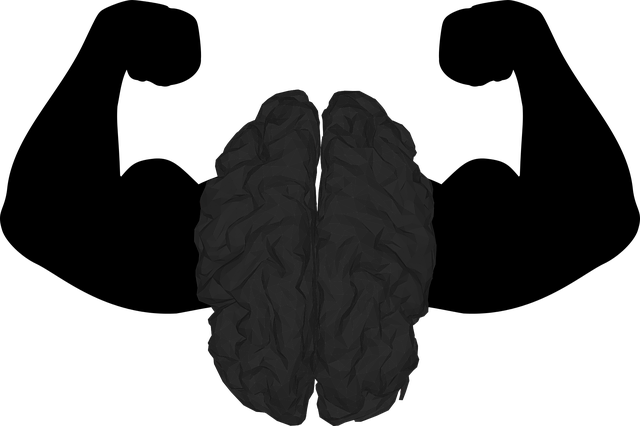Littleton Learning Disability Therapy emphasizes holistic stress management for individuals with learning disabilities, addressing chronic stress that exacerbates existing challenges. Through evidence-based practices like mindfulness, cognitive-behavioral therapy, and relaxation techniques, therapists empower clients to identify triggers and develop personalized coping strategies. This tailored approach not only enhances academic performance and emotional well-being but also prevents depression and improves quality of life. The therapy includes integrated mental wellness coaching, self-care routines, and adaptive techniques, fostering resilience and enabling individuals to navigate life's challenges with improved overall well-being.
Stress management techniques are essential tools for individuals with learning disabilities, helping them navigate daily challenges. This article explores the critical role of Littleton Learning Disability Therapy in empowering clients to cope effectively. We delve into understanding stress and its unique impact on this population. Through practical strategies and structured programs, readers will discover how to foster resilience and adaptability, ultimately enhancing the quality of life for those supported by Littleton Learning Disability Therapy.
- Understanding Stress and Its Impact on Individuals with Learning Disabilities
- The Role of Littleton Learning Disability Therapy in Teaching Effective Stress Management Techniques
- Practical Strategies for Daily Stress Reduction and Coping
- Fostering Resilience and Adaptability Through Structured Programs
Understanding Stress and Its Impact on Individuals with Learning Disabilities

Stress is a universal experience, but its impact can vary greatly among individuals. For those with learning disabilities, understanding and managing stress becomes an essential aspect of their overall well-being. In Littleton Learning Disability Therapy, professionals recognize that stress management techniques are crucial tools to empower individuals with learning disabilities to lead fulfilling lives. These techniques aim to help them navigate the challenges they may face in academic, social, and personal settings.
The effects of chronic stress on people with learning disabilities can be profound. It can exacerbate existing difficulties in processing information, memory retention, and emotional regulation. Thus, teaching effective stress management strategies becomes a vital component of holistic therapy. Through various techniques, such as mindfulness, cognitive-behavioral therapy, and relaxation exercises, individuals learn to recognize their stress triggers and develop healthy coping mechanisms. This not only improves their academic performance but also fosters better emotional well-being and depression prevention, ultimately enhancing their overall quality of life.
The Role of Littleton Learning Disability Therapy in Teaching Effective Stress Management Techniques

Littleton Learning Disability Therapy plays a pivotal role in equipping individuals with effective stress management techniques, tailored to their unique needs. This specialized therapy goes beyond traditional methods by focusing on understanding and addressing underlying learning disabilities that often contribute to elevated stress levels. By employing evidence-based practices and adaptive strategies, therapists foster an environment conducive to self-discovery and skill development. They guide clients in identifying triggers, recognizing coping mechanisms, and cultivating resilient mindsets—essential components for managing stress in both personal and professional settings.
The integration of mental wellness coaching within Littleton Learning Disability Therapy programs further enhances these teachings. These programs not only support the development of a robust self-care routine for better mental health but also encourage individuals to advocate for themselves within various contexts, including educational and workplace environments. Through tailored interventions and policy analysis, this holistic approach empowers clients to navigate life’s challenges with enhanced resilience and improved overall well-being.
Practical Strategies for Daily Stress Reduction and Coping

Incorporating practical strategies for daily stress reduction and coping is an essential aspect of managing life’s challenges, especially for individuals with learning disabilities. At Littleton Learning Disability Therapy, we emphasize the importance of self-care and emotional regulation as key components of our therapeutic approach. Our tailored Stress Management Workshops Organization provides a safe space to explore and implement various techniques that foster emotional well-being promotion.
Through these workshops, participants gain valuable insights into identifying triggers and developing personalized coping mechanisms. Simple yet effective strategies such as deep breathing exercises, mindfulness meditation, and progressive muscle relaxation are taught to help individuals navigate stressful situations with more ease. By learning these practical tools, clients can enhance their ability to manage and reduce stress, ultimately leading to improved overall emotional health and well-being.
Fostering Resilience and Adaptability Through Structured Programs

At Littleton Learning Disability Therapy, we recognize that stress management is a crucial component of overall well-being, especially for individuals with learning disabilities. Through structured programs designed to foster resilience and adaptability, our community outreach initiatives have shown remarkable success in empowering clients to navigate life’s challenges more effectively. These programs go beyond mere stress reduction techniques; they equip participants with the tools to build mental fortitude, enhancing their ability to respond positively to stressful situations.
Our approach integrates various evidence-based methods, including mindfulness practices, cognitive behavioral therapy techniques, and self-care strategies. By incorporating these into daily routines, our clients develop improved mood management skills, enabling them to adapt more flexibly to life’s twists and turns. The Community Outreach Program Implementation at Littleton Learning Disability Therapy is not just about teaching coping mechanisms; it’s about fostering a sense of agency and empowering individuals to embrace change as an opportunity for growth.
In conclusion, managing stress is an essential aspect of supporting individuals with learning disabilities. As discussed, Littleton Learning Disability Therapy plays a pivotal role in teaching effective stress management techniques, offering practical strategies for daily reduction and fostering resilience through structured programs. By understanding the impact of stress on these individuals, we can enhance their overall well-being and adaptability, ensuring they navigate life’s challenges with greater ease.














